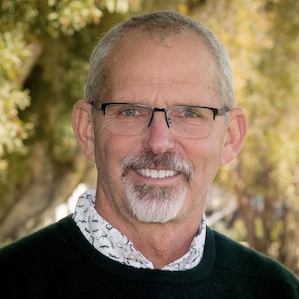Toward the Edges: Listening and Learning

One of the things I learned by being “on the ground” among unreached peoples is the value of listening and learning. To be fair, I learned it initially by my mistakes in not doing so very well!
Our current climate in the USA may go down as a case study in how not to listen and how not to press into difficult issues. I refer to tough issues like the questions about re-opening while trying to balance financial and physical health, government mandates and personal freedoms; and tough issues like how to respond to the Supreme Court ruling about employment and gender and sexuality; and tough issues like race. I am deeply troubled, not just by the issues themselves, but by our current culture of “how to disagree.” To be brief, we do it poorly.
How can we change? Listen to other voices.
I will focus on just one area of the tough things to learn to press into.
Protests and racial tension are bringing to the forefront for some of us what is always present and real for many others. One of the excellent pieces of advice I heard relative to being good listeners and learners in this season, is to broaden our sources of news and information, and listen to other voices. I am not a podcast guy, but I am a music guy. Music really is my go-to source.
Awhile back I dipped into rap. There is white rap, of course, but I was listening for black voices specifically when I came across an old favorite: Tracy Chapman. I listened to her whole first album (“Tracy Chapman”).
Ok, so it was 1988, but the words could have been written today. For context, in 1988 Ronald Reagan was in his final year as president (for more on the Reagan years and racial issues, check out the Netflix documentary “13th”).
But back to Tracy.
Apart from her musicianship and songwriting (amazing), I was moved by the scope of issues she addresses in one album. I like playlists as much as the next person, but some artists treat their albums as a whole. Tracy Chapman’s album is worth a full listen.
She deals with racism, domestic violence, hunger, poverty, co-dependency, misogyny, longing for authentic love and more. Maybe the only major issue she did not address was the environment (which she takes up in later work).
And her prophetic knife has more than one sharp side. Yes, I used the word prophetic, so before the maintenance light for heresy on your dashboard lights up, let me say this:
I believe prophetic words emerge from one source, but by several means. There is of course the means of direct inspiration. Then there is also the means by which a human being, standing in solidarity with other human beings, gets a glimpse of the image of God and speaks truthfully from that place. I think Tracy did that 32 years ago. But she could have sung those songs today. And in my heart, on a Sunday morning, she did.
The final song, which will lead to my final comment, is one called “For You”. I assume it is a love song, but I redirected it as worship. I used it for summing up all the prior 10 songs and their cries for justice and truth and reconciliation and directed them to the One I know who can cause a new kingdom to come among us...and may it be so.
Finally, my main point here is actually not just about the specific issue of racism in our country. I am making a plea, really, to all of us to find new ways of disagreeing, and of learning. That is one of the ways that, for those of us in the mission movement, we can model and display what it means to learn well from the edges of mission!








comments